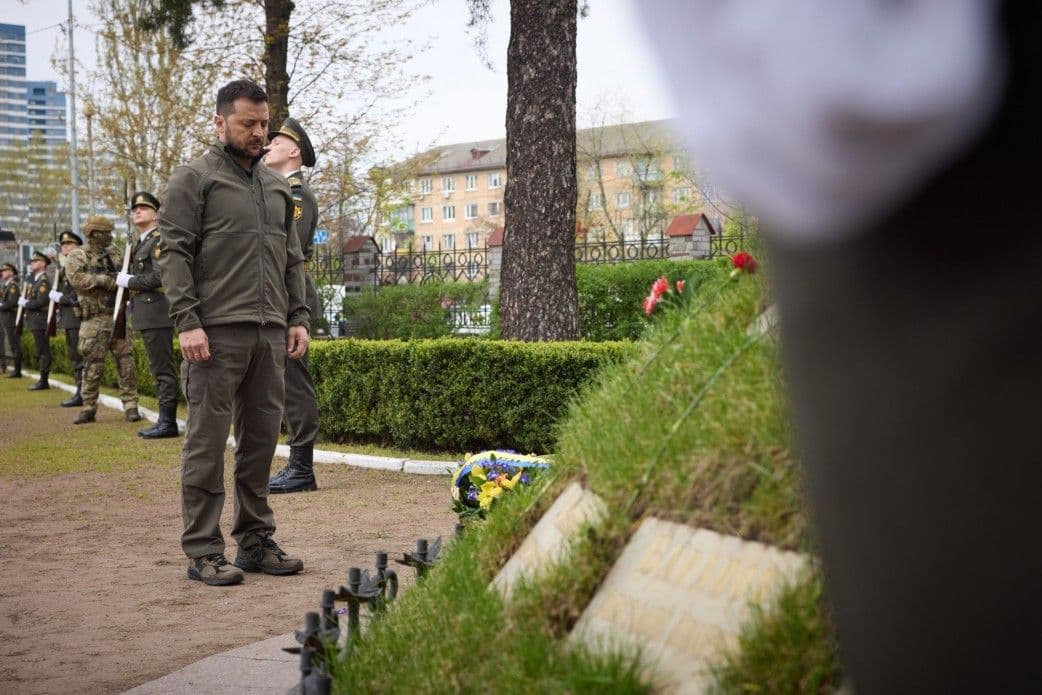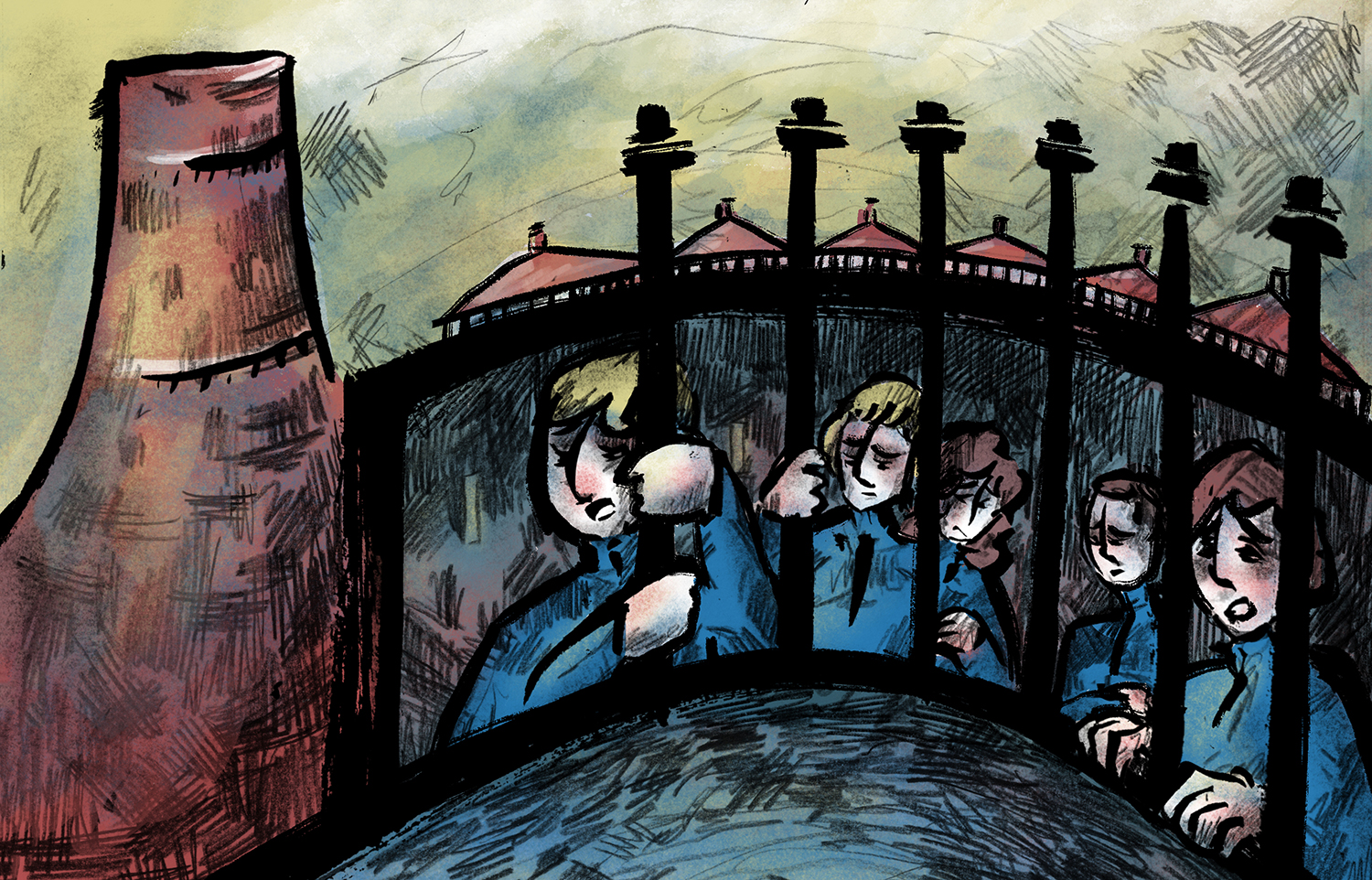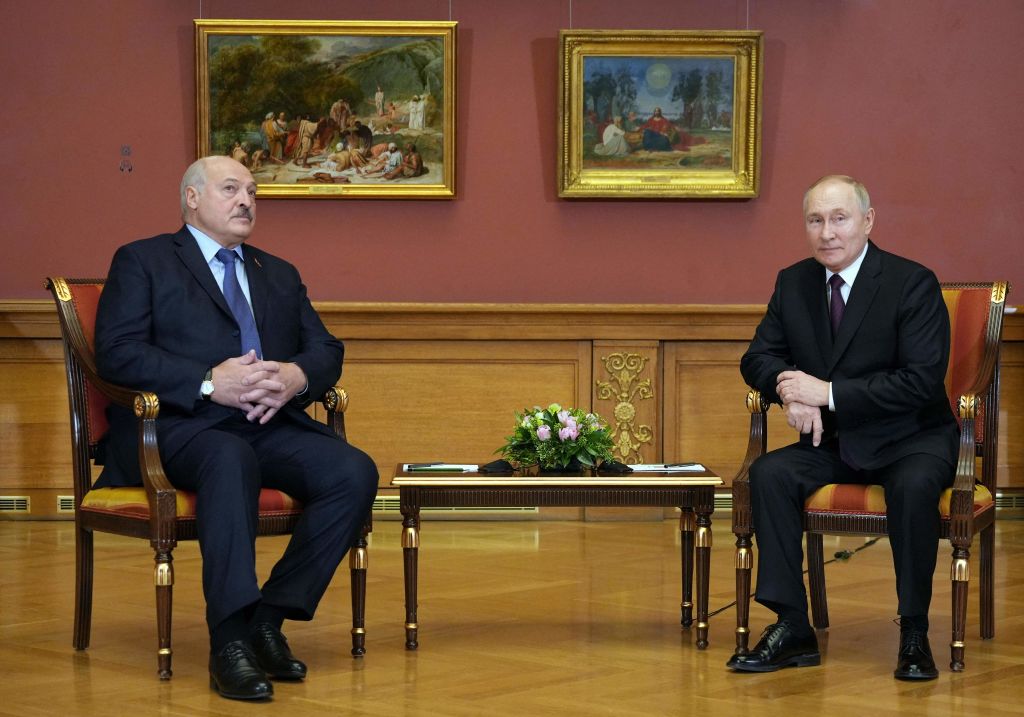Zelensky honors memory of Chornobyl disaster victims

President Volodymyr Zelensky marked the 37th anniversary of the Chornobyl disaster by honoring the memory of the liquidators of the largest nuclear accident in human history.
Zelensky laid flowers on April 26 to the memorial signs to civil and military personnel who had died after trying to limit the disaster's consequences.
"37 years ago, the accident at the Chornobyl nuclear power plant left a huge scar for the whole world. A radiation leak turned a once cozy and developed area into an exclusion zone," Ukraine's president said, as cited by his office.
"Today, the 30-kilometer zone around the Chornobyl nuclear power plant remains a dangerous place with a high concentration of radiation."
A powerful chemical explosion at the Chornobyl nuclear power plant in Kyiv Oblast that occurred overnight on April 26, 1986, led to almost 8.5 million people being exposed to radiation, according to the United Nations.
The Soviet Union's government at first tried to conceal the scale of the disaster's consequences from the international community. Ukraine exited the union and became independent in 1991, with Moscow's response to the Chornobyl accident accelerating this decision, as some historians argue.
Shortly after Russia's full-scale invasion of Ukraine started on Feb. 24 last year, Russian troops occupied the Chornobyl nuclear plant for over a month. Russia used the territory of the Chornobyl Exclusion Zone and the plant itself in an attempt to quickly transfer its troops to storm the Ukrainian capital.
Rafael Mariano Grossi, the director general of the International Atomic Energy Agency (IAEA), said he had talked to Zelensky on April 26, telling him about the agency's new medical assistance program for personnel at all Ukraine's nuclear plants.
Grossi also pledged to continue IAEA efforts to protect the Zaporizhzhia Nuclear Power Plant, which has been occupied by Russian forces since March 2022.
Since Russian troops captured the plant, they have used it as a military base from which they launch attacks at Ukrainian-controlled territory across the Dnipro River, in particular, Nikopol.













